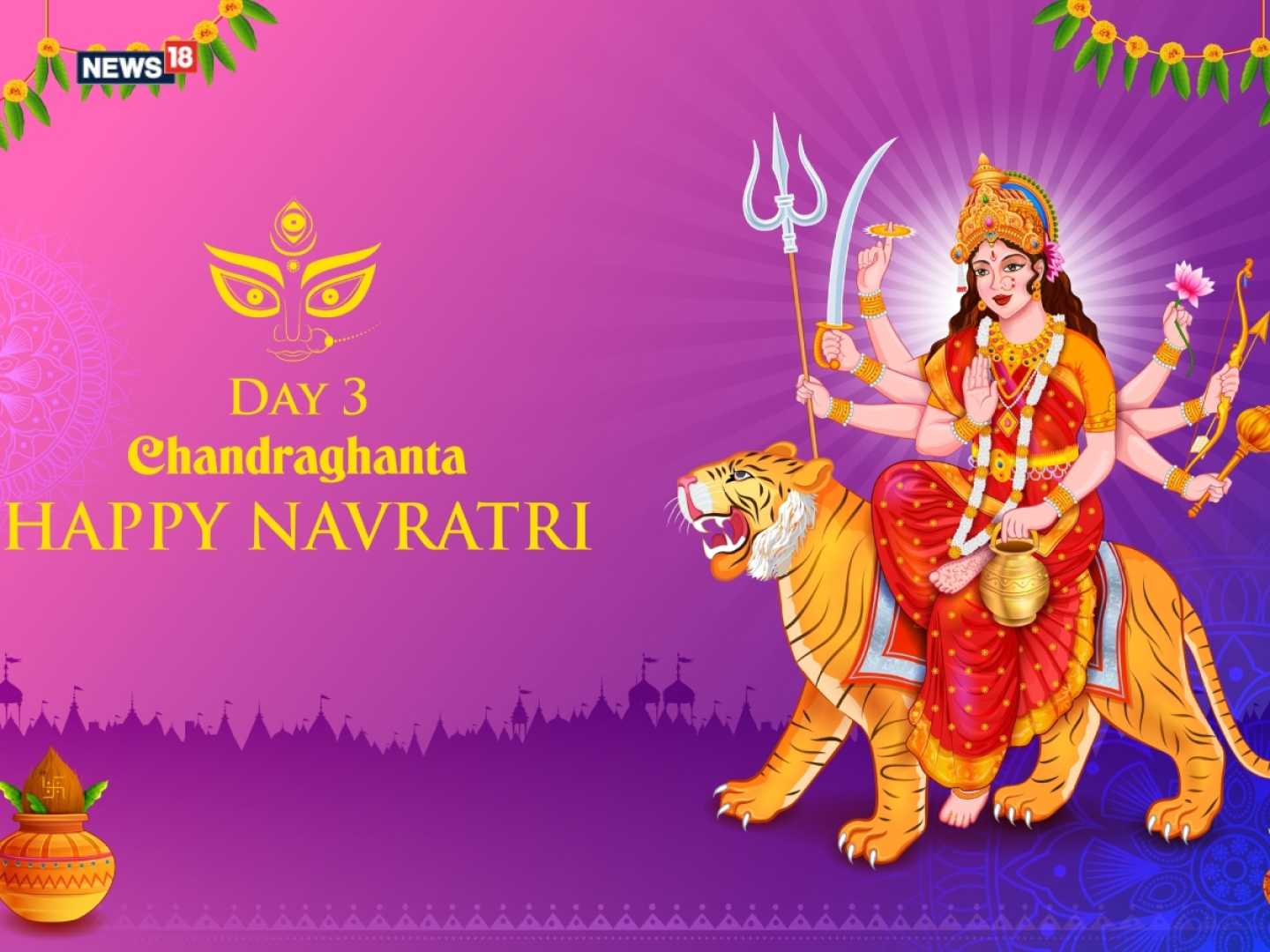News
Shardiya Navratri: Worshiping Maa Chandraghanta on the Third Day

Shardiya Navratri, a nine-day Hindu festival dedicated to the worship of Goddess Durga, witnessed devotees celebrating the third day by venerating Maa Chandraghanta on October 5, 2024. According to Hindu belief, Chandraghanta is the third manifestation of Ma Durga, revered for her perpetual readiness to combat evil.
On this auspicious day, devotees engage in rituals that honor her vigilance, which is symbolized by her always-open third eye. The festival provides a means for adherents to seek liberation from worldly troubles while cultivating clarity, self-confidence, and decision-making abilities.
The form of Maa Chandraghanta is depicted as riding a lion and wielding ten arms armed with various weapons. These characteristics represent her fearlessness and powerful stance against wrongdoing. It is believed that those who worship her attain bravery equivalent to that of a lion.
In terms of ritualistic offerings, certain items are favored by Maa Chandraghanta. The color slate gray is considered propitious, roses are her preferred flowers, and sweets made from milk are her favorite offerings. Devotional practices include offering garlands of red hibiscus and roses and chanting specific mantras.
The legend associated with Maa Chandraghanta is sourced from the Devi Bhagwat Purana. Her serene and benevolent form is described as possessing a crescent moon on her forehead, giving her the name Chandraghanta. Her complexion is likened to gold, holding various weapons like a lotus, bow, arrow, sword, trident, and mace in her ten hands.
To perform the puja, devotees rise before dawn, complete their ablutions, and invoke the divine by presenting water, flowers, vermilion, and rice grains as offerings. A specific kind of pudding made with saffron or milk sweets is prepared for her enjoyment, believed to please her significantly.
The chanting of the Durga Chalisa, Durga Saptashati, and Chandra Ghanta Kavach follows, culminating in the performance of the Aarti—a ritual that symbolically invites divine presence into one’s life while seeking forgiveness for any inadvertent errors.
Priests and devotees across various temples facilitated the traditional observances, bringing fervent spirituality to this celebrated occasion in the Hindu calendar.












